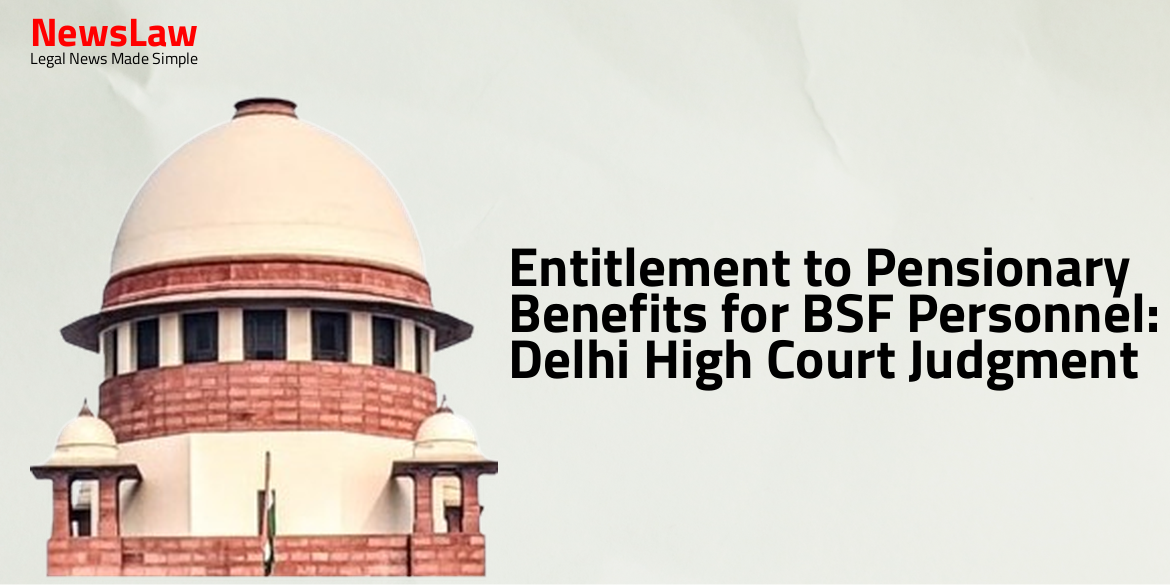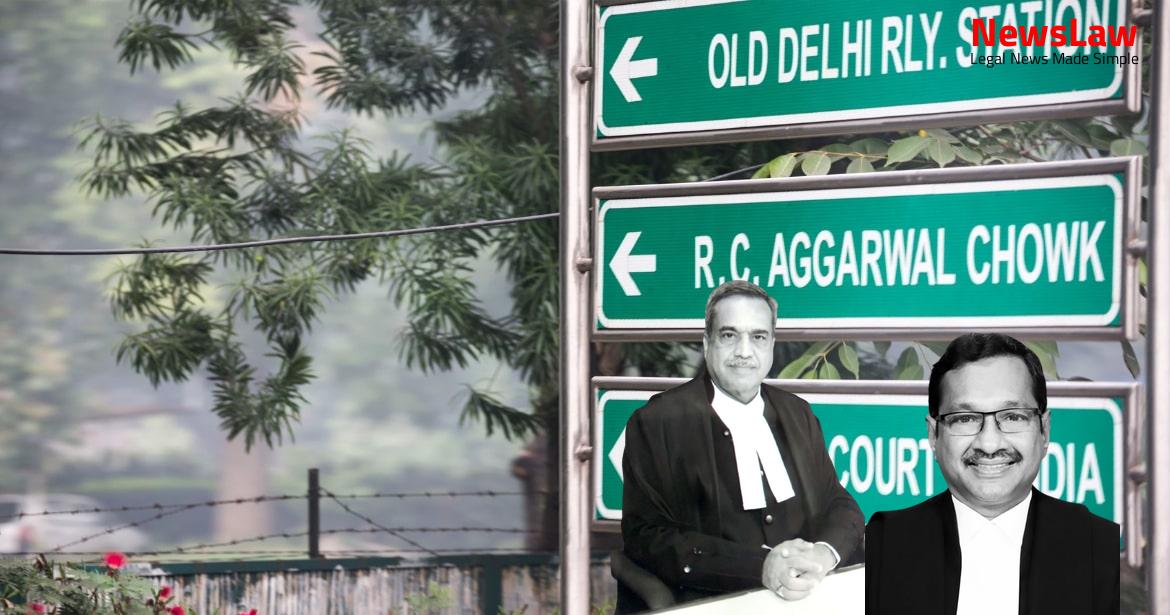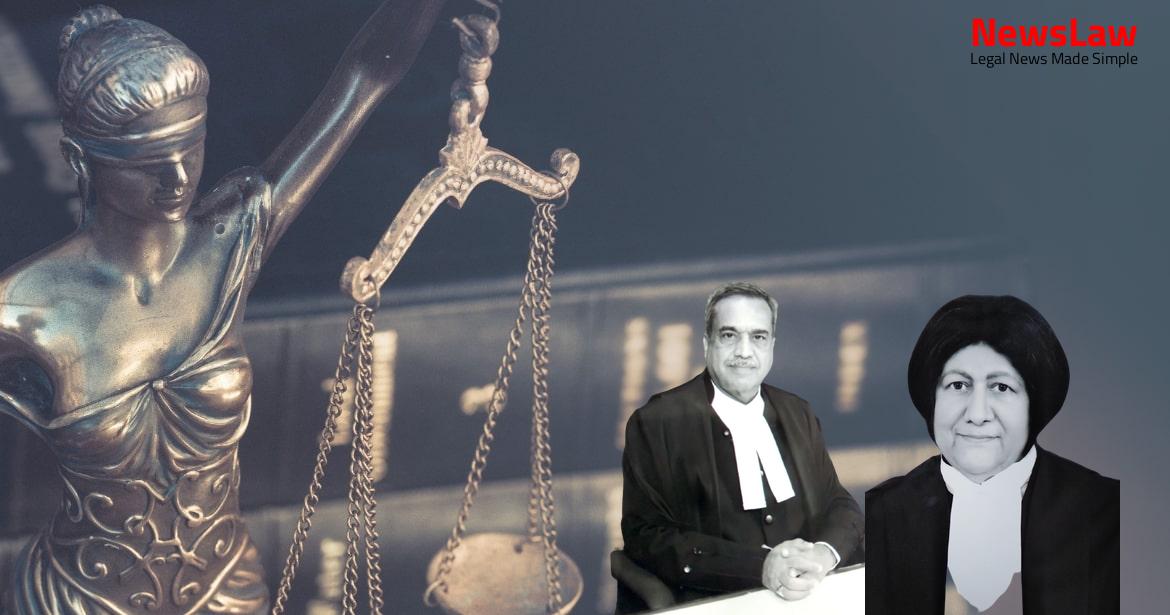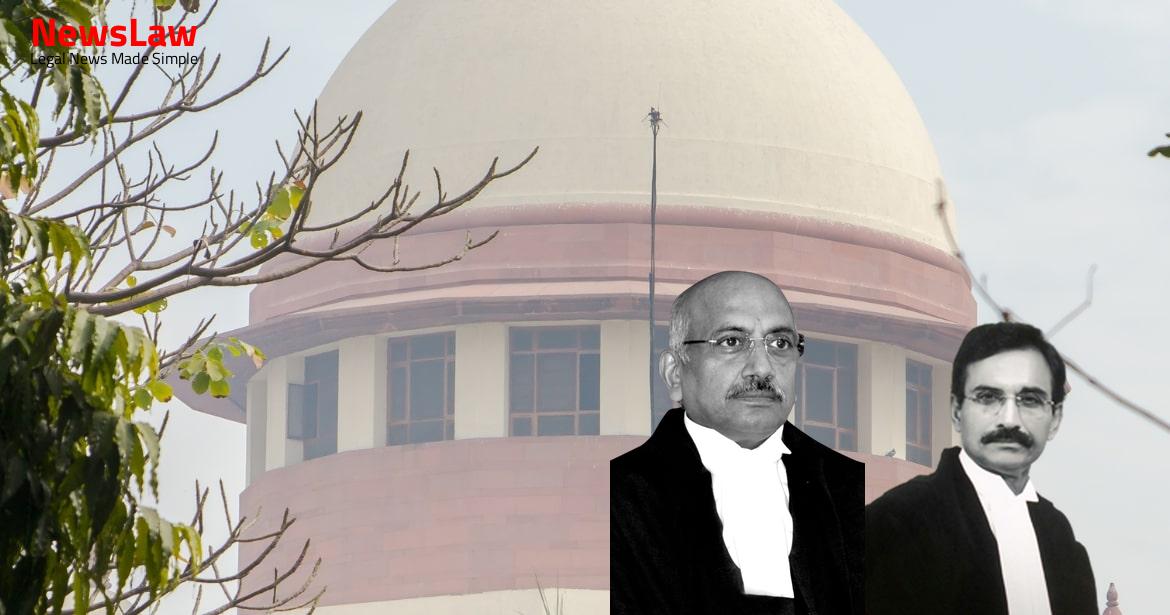In a significant ruling by the Delhi High Court, the case regarding entitlement to pensionary benefits for BSF personnel has been resolved. The judgment sheds light on the pension rights of individuals who resign before completing 20 years of service. The decision impacts individuals like Uttam Samadder, who have served for over 10 years in the BSF. Let’s delve into the details of this important legal battle.
Facts
- The petitioner, Constable Uttam Samadder, resigned from BSF on October 15, 1999, citing personal reasons.
- His resignation was accepted by BSF under Rule 19 of BSF Rule, 1969, effective from October 15, 1999.
- BSF stated that he would not receive pensionary benefits as he had not completed the required 20 years of service for eligibility as per CCS (Pension) Rules 1972.
- There was a regularization of the petitioner’s 97 days of overstayal of leave by granting him EOL from June 2, 1999, to September 6, 1999.
Issue
- Whether the petitioner is entitled to pensionary benefits/gratuity after resigning with over 10 years of service.
Arguments
- The petitioner has completed 10 years, 7 months, and 18 days of qualifying service.
- The petitioner claims entitlement to pensionary benefits and gratuity.
- Counsel for the petitioner cited the case of EX. L/N.K.P.A. Nazar v. The Director General Border Security Force and Ors. to support the contention that resignation does not affect entitlement to pension upon completing qualifying service.
- An employee is entitled to pension even in the case of resignation.
Analysis
- The resignation of the petitioner was governed by Rule 19 of the BSF Rules of 1969.
- Pensionary benefits are not available under CCS Pension Rules upon resignation due to Rule 26 stipulating forfeiture of past service.
- The G.O. dated December 27, 1995, does not confer additional pension rights on BSF employees.
- Members of BSF are entitled to pensionary benefits under CCS Pension Rules if they fulfill eligibility conditions.
- The Supreme Court has clarified that the G.O. from 1995 does not provide additional pension rights.
- Employees who resigned prior to the 1995 circular and received pension should not be asked to refund or have their pension stopped.
- The petitioner, resigning in 1999, is not entitled to pensionary benefits as per the Supreme Court rulings.
- The judgment in Union of India v. Rakesh Kumar clarifies that statutory rules cannot be ignored for pension entitlement.
- Rule 49 of the CCS Pension Rules pertains to pension calculation, not entitlement based on service duration.
- Rule 19 of BSF Rules does not grant pension benefits on resignation.
- The G.O. from 1995 does not indicate any intention to provide additional pension benefits for early retirees before qualifying service completion.
- Rule 19 of the Rules of 1969 allows for resignation from the Force before retirement under special circumstances with permission from the Central Government.
- Resignation may require refunding the cost of training or three months pay and allowances, whichever is higher, unless resigning for a job under Central or State Governments after cadre clearance or after 10 years of service.
- The Central Government may refuse resignation under certain circumstances such as national emergency, service exigencies, or unexpired specified service period.
- Rule 26 of the Rules of 1972 states conditions under which withdrawal of resignation in the public interest may be permitted by the appointing authority, including reasons for resignation, conduct during absence, and post availability.
- A resignation does not entail forfeiture of past service if submitted to take up another government appointment with proper permission.
- A demand was made by employees for grant of pensionary benefits.
- The demand was accepted by the Government.
- The employees were entitled to pension under the relevant rules.
- Respondents resigned from BSF service after completing 10 years and are not entitled to pensionary benefits
- Single Judge and Division Bench’s view upheld by them cannot be accepted based on legal position
Decision
- We allow the Appeals and set aside the orders dated August 25, 2000 passed by the Division Bench and dated September 29, 1999 passed by the Single Judge.
- The amount of pension paid to the Respondents shall not be recovered.
- The Judgment regarding the grant of pension to Army personnel in Lt. Col. P.S. Bhargava case is not applicable to the present case.
- The list submitted by the petitioner’s counsel related to BSF personnel who resigned under Rule 19 of the Rules of 1969 between January 1, 1981, and January 1, 1984, consists of personnel who received pensionary benefits before December 27, 1995.
- Even if anyone received pensionary benefits post December 27, 1995, the issue has been settled by the Supreme Court in Rakesh Kumar and Ors. case.
- The plea that BSF personnel who resigned voluntarily and did not complete the qualifying service of 20 years are not entitled to pensionary benefits is rejected.
Case Title: UTTAM SAMADDER Vs. THE UNION OF INDIA THR. SECRETARY HOME AFFAIR, GOVERNMENT OF INDIA & ORS. (2024:DHC:3634-DB)
Case Number: W.P.(C)-6404/2024



